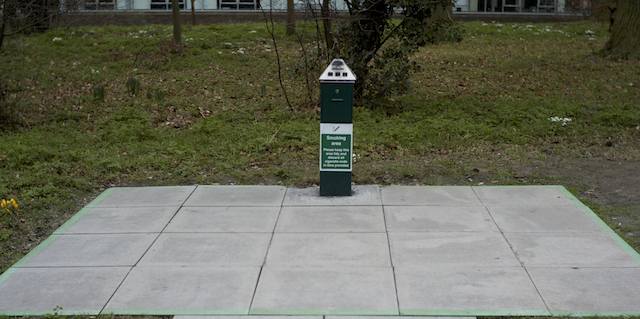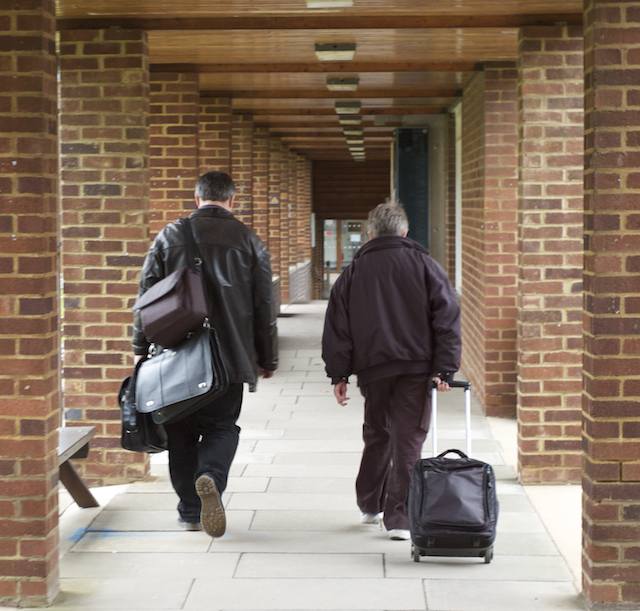Monthly Archives: February 2009
Digital nomads
Gud 4 da kids
Phew! Just seen this BBC NEWS report.
Text speak, rather than harming literacy, could have a positive effect on the way children interact with language, says a study.
Researchers from Coventry University studied 88 children aged between 10 and 12 to understand the impact of text messaging on their language skills.
They found that the use of so-called “textisms” could be having a positive impact on reading development.
The study is published in the British Journal of Developmental Psychology.
“Children’s use of textisms is not only positively associated with word reading ability, but it may be contributing to reading development”, the authors wrote in the report.
Colour profile support in Firefox 3
This is pure photogeekery but there’s a useful post explaining how to turn on colour profile support in Firefox.
Thanks to Brian for spotting it.
On this day…
… in 1993, a bomb exploded in the garage of New York’s World Trade Center, killing six people and injuring more than 1,000 others. Turned out to be just a dry-run for the main event.
Quote of the day
“I will not spend a single penny for the purpose of rewarding a single Wall Street executive, but I will do whatever it takes to help the small business that can’t pay its workers or the family that has saved and still can’t get a mortgage.”
Barack Obama, addressing the US Congress yesterday. Wouldn’t it be nice to hear something as unequivocal from Broonie?
Giving up
It’s the first day of Lent. I thought of giving up work but decided that I can’t afford it.
Aw shucks…
Poor little Harvard. According to a NYT report its endowment (which pays for a third of its operating costs)
is on the verge of posting its biggest loss in 40 years. With much of its money tied up for the long term, it is scrambling to meet some obligations.
Harvard has frozen salaries for faculty and nonunion staff members, and offered early retirement to 1,600 employees. The divinity school has warned it may not be able to cover tuition for all its students with need, the school of arts and sciences is cutting its billion-dollar budget roughly 10 percent, and the university president said this week than the unprecedented drop in the endowment was causing it to delay its planned expansion, starting with a $1 billion science center, into the Allston neighborhood of Boston.
The school has even added to its debt by issuing $1.5 billion in new bonds, its largest such offering ever.
It seems that the endowment, the largest of any university in the world, has shrunk by at least $8 billion, to $29 billion, since July. Couldn’t happen to a nicer university.
Interesting footnote. The article says that part of Harvard’s current problem is that it became highly ‘leveraged’ on the advice of Larry Summers, its former president.
The endowment was squeezed partly because it had invested more than its assets, a leveraging strategy that can magnify results, both good and bad. It also had invested heavily in private equity and related deals, which not only lock up existing cash but require investors to put up more capital over time.
What’s interesting about that? Er, Larry Summers is now one of Obama’s leading economic advisers!
Openness is a feature, not a bug
Today’s Observer column.
Openness is what makes the internet what it is. It enabled Tim Berners-Lee to dream up the web and release it on an unsuspecting world without seeking anyone’s permission. It’s also what enabled the guys who invented Skype to use the network as a carrier for voice communications, again without seeking administrative approval. But the same openness is what enabled Sean Fanning to launch peer-to-peer file sharing on the music industry. And of course it’s what enabled the sinister Eastern European crooks of Markoff’s nightmares to unleash the Conficker.B worm, with who knows what consequences.
So we’re stuck with the trade-off between the creativity, innovation – and, yes, insecurity – that comes with openness; and the security – and stagnation – that comes with a tightly-controlled network. Which do we prefer? You only have to look at the data traffic for web pages and file sharing to know the answer.



